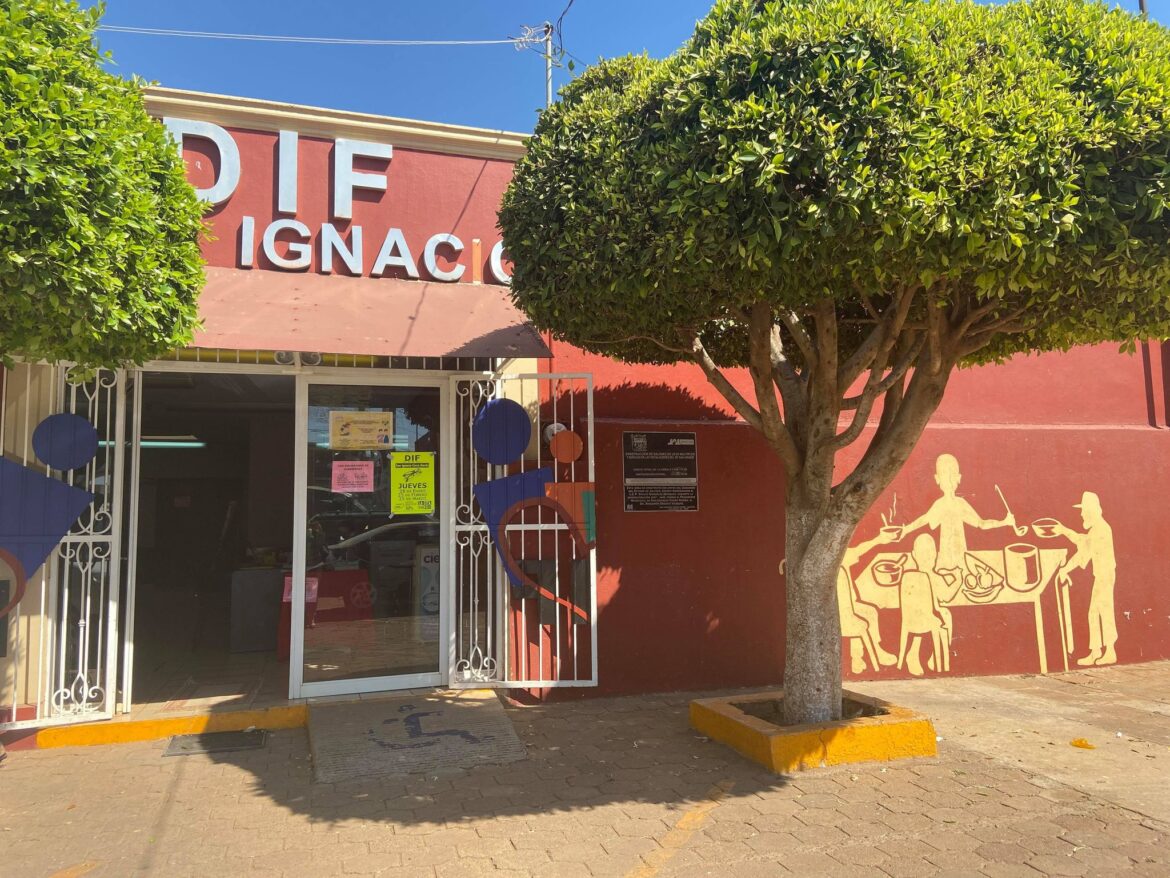SAN IGNACIO CERRO GORDO, JALISCO MÉXICO – Luz Maria Gonzalez Jimenez, a stay-at-home mom, receives physical therapy at the rehabilitation center at el DIF.
The National System for Integral Family Development, or DIF, is a Mexican public institution of social assistance that focuses on strengthening and developing the welfare of the Mexican families. It is in charge of providing food to the people in need, along with other resources.
“I had surgery in my spine, and they have given me therapies that have really helped me,” Gonzalez said.
She comes Monday-Friday for about one hour daily. Gonzalez found out about the services through her neighbor who would also come and has now recovered.
Gonzalez is not from San Ignacio Cerro Gordo, but is from La Capilla De Guadalupe, about a 15-minute drive from the town.
“Doctor Rodrigo has been the one helping me, and the therapists are very professional and kindhearted people. Even though I am not from this town, they have treated me with goodwill,” Gonzalez said.
Luz Elva Martinez Zuñiga, the director of el DIF, coordinates the jobs and programs inside.
For the different programs and services, the government sends money to the town. The government transmits about 182,000 pesos monthly, which is about $8,677 U.S. There are about 9,774 inhabitants in this town.
“The money then distributes for different programs like psychology, social work, workshops, rehabilitation center, and the food bank,” Martinez said.
Inside the psychology department there are different programs like psychology attention, which is a process that bridges the gap between sensation and perception. As well as pre- marriage courses. The department also offers a scholarship to cover funds and expenses for the programs.
In the rehabilitation center the cost for the services averages from $15-$50 pesos depending on the therapy needed. It is about 72 cents-$2.00 U.S.
The food bank gives out food daily, from Monday to Friday. Some of the items included in the food basket are beans, oatmeal, tuna, chicken, lentil and flour.
The beneficiaries are children, young adults, adults and the elderly.
“We count with 450 beneficiaries for the food supplies, that have a vulnerable situation,” Martinez said.
Martinez said most of the recipients have an incapacity, disease, are widows or have other social factors that influence their lives.
“Any person can request help, but there are some ground rules. One of them includes a socioeconomic studies exam, and they must be an adult or have an incapacity,” Martinez said.
For the food bank, the food is distributed and delivered to the family’s home. They provide food assistance in the town, but also in the smaller rural communities or “ranchos.”
Out of the 70 communities surrounding the town, 35 are a part of the program. Some of the communities include Los Dolores, Cerro Gordo and Higuerillas.
Juan Pablo Delacerva Hernandez, the transparency administrator in public administration for el DIF, oversees uploading all the public information on the different platforms of the government.
Some of the platforms include Infomex Jalisco program, and the national transparency platform. Delacerva is also in charge of viewing the requests sent through emails.
Delacerva has been working for over a year now at el DIF. He said many people go daily.
“About 50-60 residents come for the services we offer, in some cases when there is a special event taking place, about 200 people fill the building, and it is quite fun,” Delacerva said.
Delacerva said he loves his job. He loves to play a role in the community he grew up in and assist as many residents as possible.
“My favorite part about my job is supporting the people. Sometimes a resident can come in my office looking for a specific resource that we may not provide, but I can investigate to facilitate the process,” Delacerva said.
